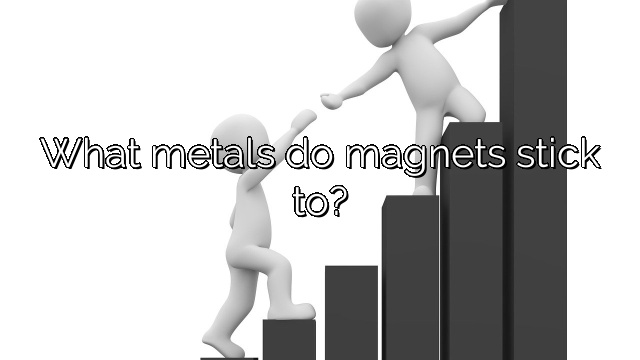copper
carbon
gold
silver
lead
bismuth
In their natural states, metals such as aluminum, brass, copper, gold, lead and silver don’t attract magnets because they are weak metals. However, you can add properties such as iron or steel to the weak metals to make them stronger.
Biden Fires Warning Shot for Retirees ... Are You at Risk?
Which metals are non magnetic
What are the 4 materials of the magnetic bottom? Iron. Iron is a well-known ferromagnetic metal. …
nickel. Nickel is another popular magnet in ferromagnetic metal homes. …
Cobalt. …
Become. …
Stainless steel. …
rare earth metals. …
Aluminum. …
Gold.
What metal is not magnetic
The steel contains the golf club, so the steel clip also tries to be attracted to the magnet. Most other metals such as aluminum, real estate and gold are NOT magnetic. Two metals that are not magnetic are precious metal and silver.
What metals are in magnets
Other magnetic metals include: Iron.
nickel.
Cobalt.
Grind alloys from rare mining blanks.
What types of metal are not magnetic
Non-magnetic metals include aluminum, ornithologists, lead, tin, titanium, and zinc in alloys such as brass and bronze. Precious metals such as gold but silver are not magnetic. Silver is not magnetic, but could potentially be magnetic in jewelry depending on what the other metals are associated with.
What can magnets not stick to
Metals that magnets do not attract
Some metals in their natural state, such as aluminum, copper, brass, lead, precious metals, and silver, do not attract magnets because they are brittle metals.
What are 3 metals that are not magnetic
Many recurring metals such as aluminium, copper, steel, gold, silver, titanium, tungsten, lead and/or are not ferromagnetic. In fact, they cannot be turned into magnets, and they are no longer attracted to magnetic fields.
Why do magnets not stick to stainless steel
Like all ferromagnetic mining crops, when heated to too high a temperature – their Curie temperature – ferritic stainless metals lose their ferromagnetism and become potentially paramagnetic – meaning they don’t normally maintain their own magnetic field, but continue to be attracted to the outside world. .
Do THIS Or Pledge Your Retirement To The Democrats
Why do magnets stick to some metals and not others
Bound electrons randomly stick to individual atoms. … The magnetic fields of their electrons are not compensated by another electron of opposite orientation. Thus, they impart a common magnetic field to your atom in which they live. Thus, some metals may be attracted to magnets because they are indeed filled with smaller magnets.
Do magnets stick to all metals
Magnets only stick to strong metals such as iron and/or cobalt, so perhaps not all types of metals can hold magnets, which begs the question “why are some precious metals not magnetic?”. However, over time, you can add properties such as iron and even steel to weak metals to make them stronger.
What metals do magnets stick to
Metals that are attracted to magnets Metals that are naturally attracted to magnets are called ferromagnetic metals; These magnets stick strongly to these metals. For example, iron, cobalt, steel, nickel, manganese, gadolinium and, in addition, magnetite are ferromagnetic metals.
Do magnets stick to non ferrous metals
Properties of non-ferrous metals We recommend using a magnet to determine if the pen is iron or non-ferrous. The magnet will stick to the iron ones, not the colored ones.
ALERT: Secret IRS Loophole May Change Your Life


